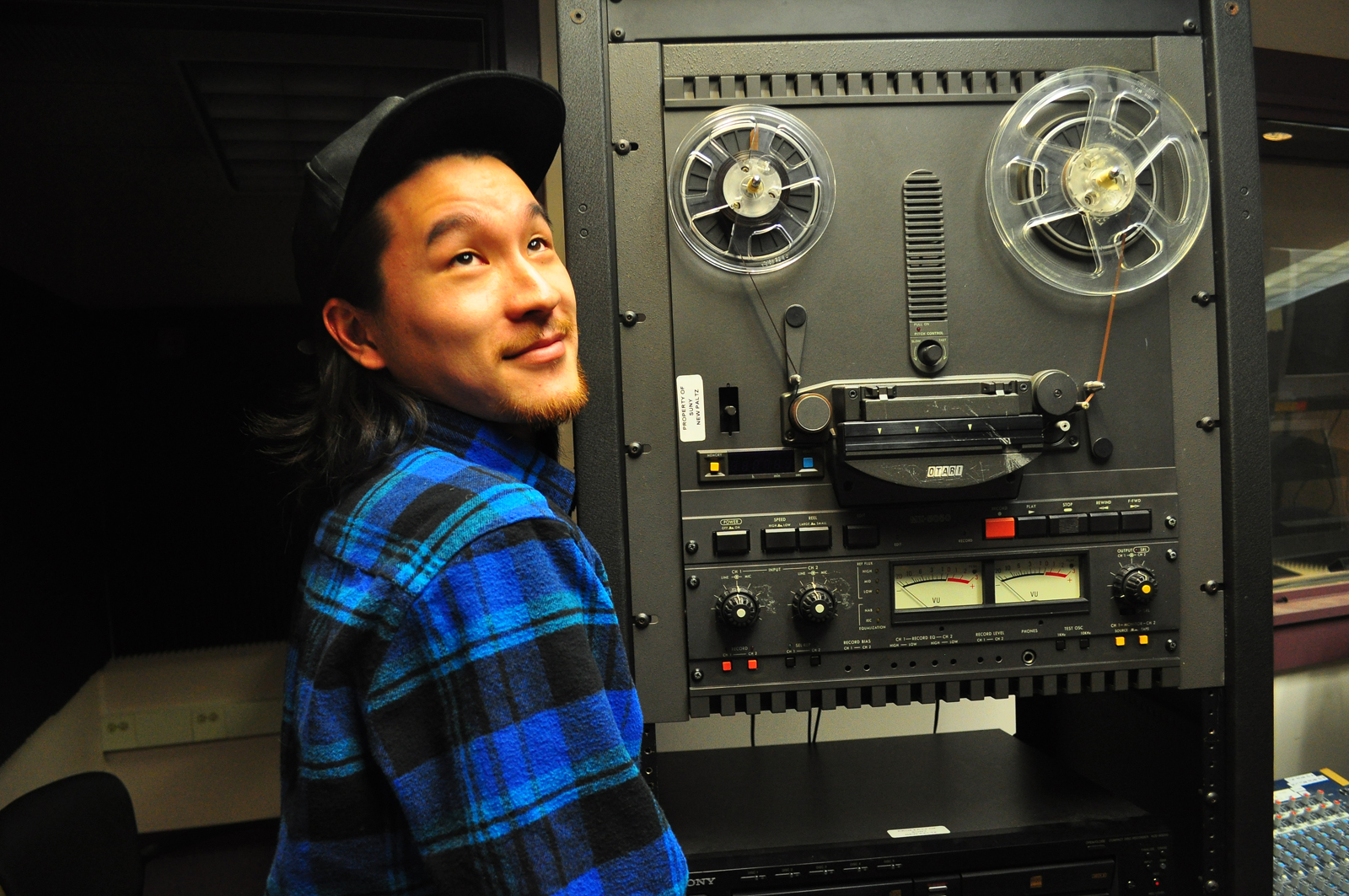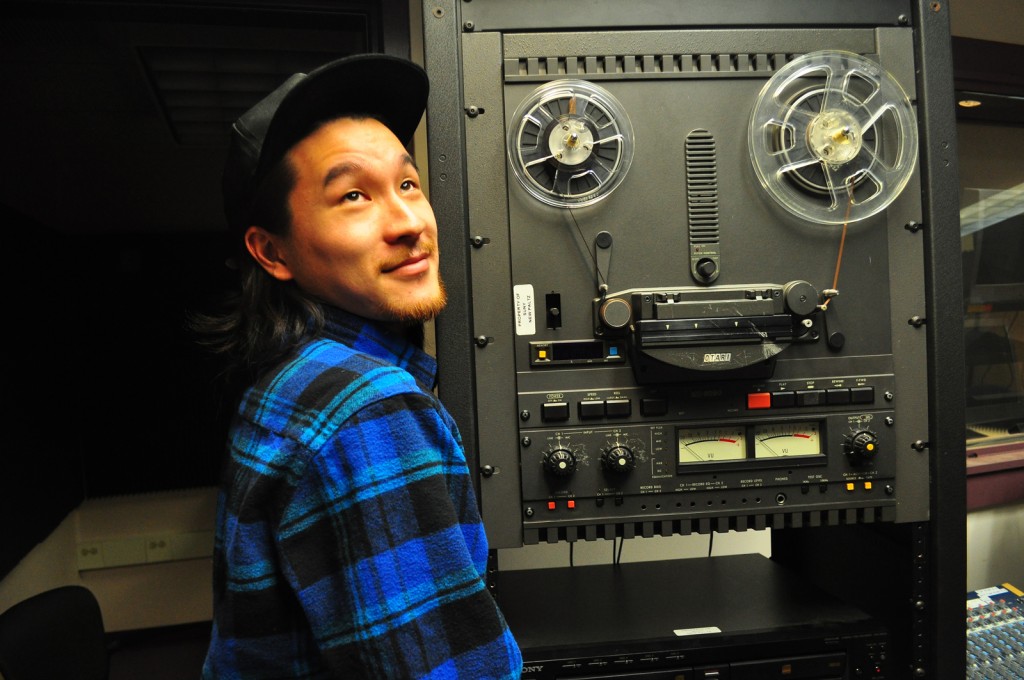

For Riki Sakai, saying nothing at all was more than enough to fit in, something he learned when he came to the United States from Japan almost two and a half years ago.
Hailing from Kanagawa, Japan, a city just south of Tokyo, Sakai came to the U.S. unable to speak English and uncertain of how to find his way around a strange country. He began to use body language to communicate and soon, English came naturally. He also said the clothes he wore, styles popular in the U.S., helped him find his place as well.
While the majority of his time in the U.S. has been spent in New Paltz, Sakai actually first attended Thiel College in Greenville, PA. While studying at Thiel and on the verge of graduating with an Associate of Arts degree, Sakai began to worry about his future. He worried that once he returned home, his country’s growing economic struggles would prevent him from getting a job. Sakai discussed with his parents what he should do and eventually discovered SUNY New Paltz.
“I was using Collegeboard.com and I typed all of the stuff that I cared about and I just chose New Paltz,” Sakai said.
Sakai came to New Paltz in the spring of 2010 as a radio/TV production major, and said the experience has been great so far. He said that while at Thiel, he tried to avoid hanging out with other Japanese students so he could learn English, but that changed when he came to New Paltz.
“I kind of realized that it’s not good to not hang out with Japanese people, because it’s kind of a huge community and I can’t just be like, ‘No, I’m not Japanese.’You know?” Sakai said.
When not hanging out with both his American and Japanese friends, Sakai said most of his time has been put towards schoolwork, so joining clubs wasn’t an option. However, he did say that in his free time, he’s had fun checking out New Paltz and the surrounding area. Sakai said he enjoys the diversity of things to do in and around town and the unique culture of New Paltz.
“Even though it’s a small town, I can see a lot of stuff. I like hippie culture. Even though I don’t have a car, I can go anywhere I want and buy basically anything I need for life.”
Coming from Japan, Sakai has experienced culture shock on a number of occasions here in the U.S. He said that compared to Japanese people, Americans are much friendlier and making friends is much easier here. He also said that not having a regular form of transportation has been difficult to adapt to. In Japan, Sakai said, trains can be taken to and from just about anywhere, but at New Paltz, this is not the case. On top of his lack of a car, this has been no easy change.
Sakai also said that even taking compliments has been something to get used to. He said that in Japan when someone compliments you, you’re supposed to just say “No,” because modesty is held in high esteem. People who say “Thank you” are considered to be bragging, something that’s looked down upon.
“It’s crazy because even though you think, ‘I like my shoes.’ you can’t say thank you.”
Sakai said that when he went to one of his classes, a classmate complimented him on his attire and he answered with the traditional Japanese answer. This confused the student, who soon explained to Sakai that in the U.S., people answer with “Thank you” to a compliment. Sakai said this change took a lot of getting used to, but that it’s getting easier.
Sakai also said that while he enjoys American cuisine, something he describes as greasy but still palatable, he prefers the traditional Japanese fare of primarily fish and vegetables. He also said before he turned 21 and was unable to drink in the U.S., unlike in Japan where the drinking age is 20, was annoying. He said that in Japan, even if you are under 20, you can still drink as long as you seem like an adult. He found it funny that this was not the case in the U.S. and considers the American drinking policy to be very strict.
Another big change for Sakai was the custom of tipping. He said that in Japan, tipping is non-existent, so when he and a friend went out to eat, they had no idea they’d forgotten something when they payed the bill. Sakai said that in Japan, after you eat, you go to the cashier, you pay and get out, but in the U.S., you just put money on the table and leave.
“We just payed for the stuff we ate, but we didn’t pay tip so the waitress had to catch up with us saying “You didn’t pay for the tip,” said Sakai, who then answered back with, “What do you mean tip?”
After living in Scudder Hall during his first semester, Sakai now lives off campus near P&G’s Resturant. He said now that he has his own place, he can cook foods more akin to his tastes instead of eating at Hasbrouck.
Sakai said a big difference between Japan and the U.S. is that in Japan, collectivism and harmony are extremely important. He said that even though in Japan one can do what they want with their life, they must try to keep group harmony. Sakai said in some cases, voicing ones opinion or criticizing another person’s is uncommon and frowned upon. He said that in America, the situation is much different.
“I think America is freedom and that’s what I like about it,” Sakai said.
